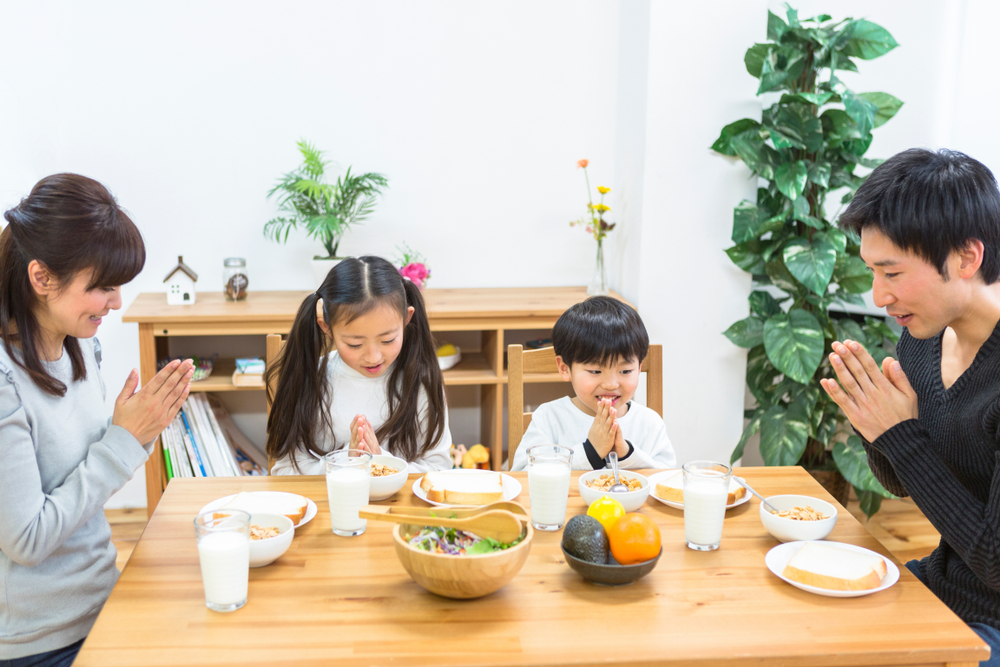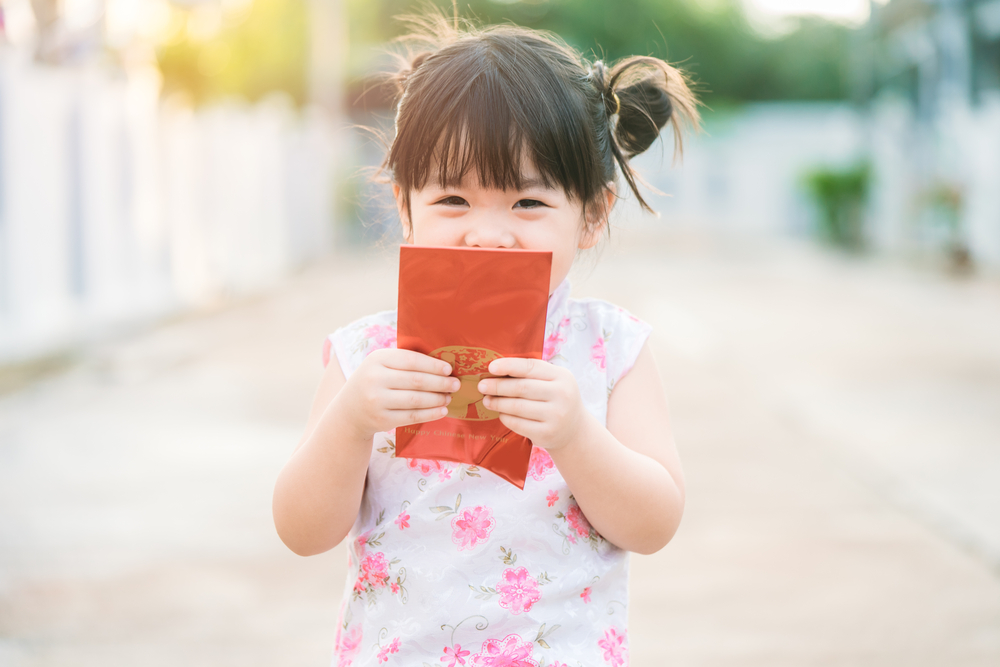About Me
I am a Singaporean Chinese man who has been harmoniously married to my Japanese wife for more than six years. Although we met and dated each other in Japan, she made the brave decision to come with me to Singapore after our marriage. Currently, we are now co-parenting our two-year-old son in Singapore.
Raising our boy to be passionate about both cultures is topmost on our priority list, as we maintain close relationships with her family in Japan and try to visit them whenever we can. So, I will share some anecdotes that illustrate how we nurture a multicultural environment for him with all of you. Of course, your family’s situation will be different, so you can tailor my tips to suit your family’s needs!
Perks Of Exposing Your Child To Both Cultures

Being born in a multilingual and multicultural family is one of the best ways to nurture your children to be respectful and empathetic. As your children pick up and navigate the cultural norms from both cultures, they can get a heightened sensitivity of the similarities and differences between them, as well as learn about common values that bind their parents together. Saint Augustine once said, “The world is a book, and those who do not travel read only a page.” Gaining a rich and nuanced appreciation of the world we live in surely comes easily to children whose parents are from different cultures!
Growing up in a multicultural family enhances your children’s cultural versatility, which can be beneficial for them securing competitive jobs in the future. The world is an ultra-connected global village nowadays, with remote working and international video conferencing becoming the norm. Hence, many jobs require employees to work with people from a diverse set of backgrounds. Your children will already be bestowed with an advantage, as they will have not only learned the dos and don’ts of numerous cultures, but also how to actively practice and assimilate them!
Keep Both Languages Alive

Language plays a huge part in our self-concept and identity, so it is ideal for both parents to agree on the language environment they hope to provide their child with. When both parents incorporate their mother tongue languages into their children’s daily routine and make them come alive, the chances of kids internalizing both languages will increase. Children’s brains are amazingly plastic, which helps them absorb words like sponges. Perhaps you can adopt the method employed by my wife and me: we use the One Parent One Language (OPOL) method, in which my wife interacts with him only in Japanese and me likewise in Chinese. It has actually been a blast watching our boy respond to us without skipping a beat even though we throw instructions at him in Japanese and Chinese simultaneously. Try doing this with your children!
You and your spouse will also have to think about how to build a conducive environment to acquire the language in the case that it is a minority language in the country you’re based in. In our case, we subscribe to NHK Japan so that our son gets to watch children’s programs and remember key words and phrases. We also bring him to Kinokuniya, a large Japanese bookstore chain, and buy Japanese storybooks for him. Right now, he is still young, but when he enters pre-school, we will be sure to send him to a reliable language school where he can brush up on his Japanese. The advantage of enrolling him in a language school is that it enables him to make friends with other kids with who he can also converse in Japanese. Creating authentic opportunities to help your children use Japanese naturally will surely aid in their acquisition.
It’s important to note that not all bicultural children will take to both languages like ducks to water. In fact, there are many cases where they may be resistant to one of the languages. If this situation is something that you identify with, try to be patient with your children and take it in stride. Don’t make the mistake of pushing them too hard to the extent that they will be turned off by the notion of learning. Keep stoking the flames of bilingualism and have faith that even if they don’t pick up one language now, the exposure they have to both languages will hone their brains’ plasticity and make their mouths more malleable. This will only benefit them if they ever decide to learn another language in the future.
Incorporate Customs Into Daily Life

You and your spouse can also look into infusing customs from your culture into your children’s daily routine so that they will learn how to exhibit behaviors that are typical of people from both cultures. Case in point: mealtimes. Despite being two years of age, our son already knows how to clap his hands at the beginning and end of every meal to signify “itadakimasu” (I humbly receive the food before me) and “gochisosama” (thank you for a wonderful meal) respectively (in case you are wondering, yes, he also loves to eat natto).
He won’t be using chopsticks any time soon, but when the time comes for him to utilize chopsticks, you can be sure that I will watch him with a keen eye and not let him stick his chopsticks into his bowl of food (sticking chopsticks into food is a taboo strictly followed by Chinese people since the chopsticks will then resemble the incense burned during Chinese funerals)!
What are some customs that you hold dear to your heart and wish to pass down to your children? Assisting your children to inherit these customs will imbue them with a strong sense of self as they internalize the values that are prized from both parents’ cultures. This will then serve as an anchor for them to deal with a fast-changing world.
Connect With Extended Family Members

With technology so advanced these days, there is no reason why you shouldn’t rope in your parents and relatives to engage with your children and solidify their bond to both cultures. Although we are not in Japan, we communicate often with my parents-in-law regularly through video calls. It has been amusing watching my son wave hello at his grandparents and propose a “kanpai” (cheers) toast at them. My father, on the other hand, visits his grandson once a week to play with him.
Putting such rituals and routines in place not only allows your children to communicate with both sets of grandparents in your mother tongue languages, but also serves to enhance their cultural acumen as they observe real-life practitioners of traditions in action. Values are more often caught than taught, so equipping your children with chances to bond and spend quality time with extended family members is pivotal to keeping both language and culture relevant for them.
Network With Other Multicultural Families

Children who come from multicultural families may sometimes face an identity crisis as they are bombarded by influences from both cultures and are thus confused about who they really are. In order to pre-empt this situation, I suggest that you find other families who are also raising their children in a similar environment. Join support networks where you can connect with other families of similar profiles and discuss your triumphs and struggles. Encourage them to sign up for classes at a community center and mingle, enabling him or her to interact with people from all walks of life.
Networking with other families will lead to opportunities for your children to make friends with other mixed children. As your children’s social circle expands, encourage them to go on playdates, excursions, and even virtual parties with their newfound friends. There’s nothing like being able to find friends who relate directly to your children’s situation that will help them instill a healthy third culture identity. This may be the best thing you do to help your children be comfortable (and proud!) in their own skin.
Celebrate Festivals From Both Cultures

Last but not least, one major perk of growing up in a multicultural family is celebrating the festivals from both cultures. This means that compared to children who grow up in a single-culture family, kids in multicultural families enjoy double the fun and festivities! Personally, it was wonderful to be able to celebrate Japanese New Year with my family, only to top it up with the celebration of Chinese New Year barely two months later. Our son certainly enjoyed collecting all the “otoshidama” (monetary gifts given to Japanese children by adults) and “hong baos” (monetary gifts given to Chinese children by adults) during Japanese New Year and Chinese New Year respectively. My wife and I joked that he was the richest person among the three of us!
Joking aside, celebrating festivals lets multicultural children to get a firm grasp of their parents’ heritage and traditions. In fact, as your children mature, you can highlight teachable moments by sharing with them about the similarities and differences between both cultures – and the fascinating aspects of your partner’s culture that you especially love. Doing so will let your children feel special and have a whale of a time during their growing up years!
Closing Thoughts
Prior to reading this article, perhaps you might have felt apprehensive about the idea of raising a mixed child as you do not have your own childhood experiences to fall back on. I hope that these tips on how to raise a multicultural child were useful and even excited you about raising your children. Shower your children with lots of love and have fun journeying alongside them.
If you want to give feedback on any of our articles, you have an idea that you’d really like to see come to life, or you just have a question on Japan, hit us up on our Facebook!
The information in this article is accurate at the time of publication.

